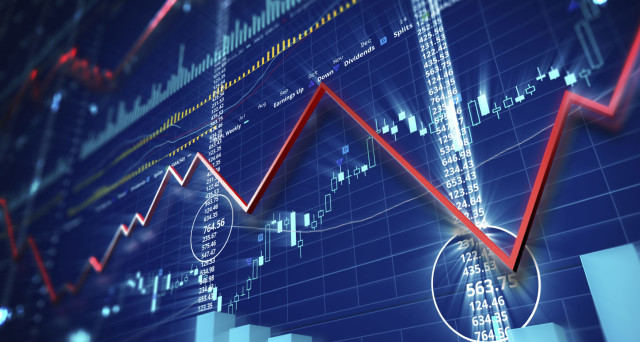Bond markets predict financial stagnation for Russia. Wsj report

What will happen to bond markets according to the Wall Street Journal
Judging by the bond market, it will take years for Russia to rejoin the global financial system.
Russian government bonds fell below 10 cents last week, putting the country's debt on par with Venezuela, which collapsed during the famine five years ago. The valuation is close to the minimum bond threshold set by Argentina, which took 15 years to repay creditors after a bitter legal battle with hedge funds – reports the WSJ .
The country faces a key interest payment on dollar-denominated bonds on Wednesday, and the Russian finance ministry has sent investors mixed messages as to whether it intends to give them dollars or rubles. Uncertainty sparked concern that a ruble payment could result in a default and speculation as to what legal remedies creditors might pursue.
Fund managers are also discussing how long it would take creditors to get their money back. Furthermore, they are concerned about the reputational blemish that hangs on all Russian assets, from stocks and bonds to oil and beer.
Russian bonds had investment-grade ratings. Furthermore, they were trading at around 100 cents until the country invaded Ukraine, triggering unprecedented financial sanctions from the United States and European countries. The Kremlin has responded with measures including a freeze on payments of bonds in foreign currencies such as dollars and euros that have fueled expectations of a default.
Investors dealing with distressed debt, sometimes called vulture funds, typically flock to government bonds. These are traded at such low prices. They aim to negotiate payments when countries try to re-enter international bond markets or to force them to pay through litigation. Hedge funds are reluctant to use that manual with Russia.
Bondholders would have a hard time seizing Russia's overseas assets through lawsuits, said Jay Newman, the former portfolio manager of Elliott Management Corp. who led an international lawsuit against Argentina that made the hedge fund $ 2.4 billion in 2016.
“There are no investor protections in bonds, so it's going to be a much tougher fight,” said Mr. Newman. "Let's say that even if you win a sentence, enforcing it against a country like Russia would be very difficult."
Bringing Russia to the negotiating table could be just as challenging. This is because the country could survive for years without borrowing internationally, analysts said. About 80% of its debt was held by domestic investors last year, according to S&P Global Ratings, and its oil exports support the government's cash reserves, giving investors little trading leverage.
The last time Russia defaulted in 1998, Boris Yeltsin's government struggled to meet expenses. In particular, depending on the International Monetary Fund for assistance. The hedge funds that bought ruble-denominated treasuries for less than 10 cents more than doubled their money. This, after exchanging the debt for new securities, said a fund manager who attended.
If foreign bondholders tried to cut a restructuring deal with Russia, they would be blocked by U.S. or European Union restrictions on engaging with Russia's federal government, said Carlos de Sousa, a fund manager at Vontobel Asset. Management. Investors aren't sure how long the sanctions will last, even if the war in Ukraine ends.
The few investors willing to buy Russian debt have struggled to do so. This is because Western sanctions have caused the companies processing the transactions to reduce their activity in Russian bonds.
At current prices, Russia's largest foreign bondholders would be better off holding on to debt. Unless they are forced to sell by legal obligations, Mr. Newman said. "Mark it at zero, forget it and see how things evolve".
Russian dollar-denominated sovereign bonds are priced at around 8 cents, according to Advantage Data Inc. Argentine bonds are priced at as low as 6 cents in 2009 during the global credit crisis, according to Advantage Data.
The owners of the Russian debt could recover something, but perhaps not for decades, University of Virginia law professor Mitu Gulati said. Investors who bought outstanding bonds from the fallen Russian imperial government in 1917 were partially repaid in the 1980s. Period in which the Soviet leader Mikhail Gorbachev tried to access the capital markets.
For many investors, the war in Ukraine is also giving them a break.
"I have never seen this situation before where everyone is giving a test of courage and saying 'does this cross the line?'" Said Hans Humes, founder of Greylock Capital Management LLC, which traded in both Argentina and Venezuela bonds in default. "I will go anywhere, but I will not make [Russia]".
This is a machine translation from Italian language of a post published on Start Magazine at the URL https://www.startmag.it/economia/i-mercati-obbligazionari-prevedono-un-ristagno-finanziario-per-la-russia-report-wsj/ on Sun, 20 Mar 2022 09:00:47 +0000.
